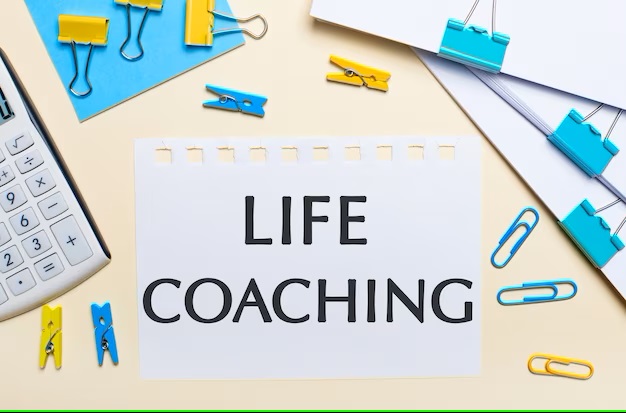
Are you passionate about helping others reach their full potential? Do you have a knack for guiding people through life’s challenges and empowering them to achieve their goals? If so, then a career in life coaching might just be the perfect fit for you. Life coaching is an incredibly rewarding profession that allows you to make a positive impact on the lives of others. And by obtaining your life coaching certification, you can take your skills and expertise to new heights. In this blog post, we will explore the benefits of becoming a certified life coach and guide you on the journey towards empowerment. So buckle up and get ready to embark on this exciting road with us!
What is life coaching?
Life coaching is a powerful and transformative profession that helps individuals identify their goals, overcome obstacles, and create meaningful change in their lives. Unlike therapy or counseling which focuses on healing past wounds, life coaching is future-oriented and action-driven. It is all about helping clients tap into their full potential and live the life they truly desire.
As a life coach, your role is to provide guidance, support, and accountability to your clients as they navigate through various aspects of their lives. Whether it’s career development, relationships, personal growth, or achieving work-life balance, you will help them gain clarity on what they want to achieve and develop strategies to make it happen.
One of the unique aspects of life coaching is its emphasis on empowering clients to find their own answers. Rather than giving advice or telling clients what to do, you will employ powerful questioning techniques that encourage self-reflection and exploration. This helps clients uncover their strengths and values while gaining new perspectives on challenges they may be facing.
Another important aspect of life coaching is the focus on setting actionable goals. Through effective goal-setting techniques such as SMART (Specific Measurable Achievable Relevant Time-bound) goals or WOOP (Wish Outcome Obstacle Plan), you will assist your clients in identifying specific steps towards achieving their objectives.
Life coaching provides an incredible opportunity for personal fulfillment while making a positive impact in the lives of others. The journey towards becoming a certified life coach opens up doors for continuous learning and professional growth.
The benefits of becoming a certified life coach
One of the most rewarding career paths to consider is becoming a certified life coach through MasterMyLife. With this certification, you have the opportunity to make a positive impact on people’s lives and help them reach their full potential.
One of the key benefits of becoming a certified life coach is the ability to empower others. Through your coaching skills and techniques, you can guide individuals in setting goals, overcoming obstacles, and improving their overall well-being. This sense of empowerment not only brings fulfillment but also strengthens your own personal growth.
Another advantage of obtaining a life coaching certification is credibility. Clients will have confidence in your abilities knowing that you have undergone extensive training and met specific industry standards. Being certified adds value to your services as it demonstrates professionalism and expertise.
Furthermore, being a certified life coach opens up various opportunities for career advancement. You can choose to work independently or join an established coaching organization. Additionally, there are diverse areas within life coaching such as career coaching, relationship coaching, or health and wellness coaching.
Becoming a certified life coach allows for flexibility and freedom in terms of scheduling and location. Whether you prefer working from an office space or remotely from anywhere in the world, this profession offers versatility that suits different lifestyles.
The different types of life coaching certification
The field of life coaching offers a variety of certification options for those looking to embark on this rewarding career path. These certifications not only provide credibility and professionalism, but they also allow coaches to specialize in specific areas that align with their passions and expertise.
One type of certification is the International Coach Federation (ICF) credential. The ICF is a globally recognized organization that sets high standards for professional coaching practices. They offer three levels of certification: Associate Certified Coach (ACC), Professional Certified Coach (PCC), and Master Certified Coach (MCC). Each level requires different amounts of training hours, coaching experience, and passing an exam.
Another popular option is the Certified Professional Co-Active Coach (CPCC) offered by the Coaches Training Institute (CTI). This program focuses on co-active coaching principles, which emphasize collaboration between coach and client to achieve transformational results. CPCC certification requires completion of CTI’s core curriculum, mentor coaching sessions, observed coaching demonstrations, and a final evaluation.
For those interested in working with individuals facing career transitions or seeking personal fulfillment at work, the Board-Certified Career Counselor (BCCC) designation may be ideal. BCCC is offered by the National Career Development Association (NCDA) and requires knowledge in career development theories as well as practical counseling skills.
There are various niche certifications available for specialization in areas such as relationship coaching, wellness coaching, executive coaching, or even spiritual life coaching. These certifications often require additional training beyond foundational coach training programs.
With so many options available, aspiring life coaches can choose a certification that aligns with their interests and goals while ensuring they receive proper training from reputable organizations. Whether it’s through ICF accreditation or specialized certifications tailored to specific niches within life coaching – investing in these credentials can open doors to new opportunities for both personal growth and professional success.
How to become a certified life coach
Becoming a certified life coach is an exciting and rewarding journey that can lead to personal growth, professional success, and the ability to positively impact the lives of others. If you’re passionate about helping people overcome challenges, achieve their goals, and live their best lives, then pursuing a certification in life coaching may be the perfect path for you.
To become a certified life coach, there are several steps you can take. First and foremost, it’s important to do your research and find a reputable training program or organization that offers certification courses. Look for programs that align with your values and provide comprehensive training in areas such as communication skills, goal setting techniques, motivational strategies, and ethical guidelines.
Once you’ve identified a program that resonates with you, enroll in the certification course. This will typically involve completing modules or classes either online or in-person. It’s important to fully immerse yourself in the curriculum and actively participate in any group discussions or exercises.
After completing the required coursework, most programs will require you to demonstrate your knowledge through exams or assessments. These evaluations are designed to ensure that you have gained a solid understanding of key coaching principles and techniques.
Additionally, many certification programs also require practical experience hours where you work with clients under supervision. This hands-on experience allows you to apply what you’ve learned in real-life scenarios while receiving feedback from experienced coaches.
Finally comes the momentous occasion of receiving your official certification! With this credential in hand, doors will open for opportunities such as starting your own coaching practice or working within established organizations.
Remember that becoming a certified life coach is not just about obtaining credentials; it’s about committing yourself to ongoing learning and growth within this field. Continuing education courses can help expand your knowledge base even further so that you stay current with industry trends and continue refining your coaching skills.
In conclusion (without using those exact words), embarking on the journey towards becoming a certified life coach requires dedication, passion, and a commitment to lifelong learning. By investing in your own
Conclusion
Becoming a certified life coach can be an incredibly empowering and fulfilling journey. It not only allows you to make a positive impact on the lives of others but also brings personal growth and satisfaction.
Through life coaching, you have the opportunity to help individuals overcome obstacles, achieve their goals, and unlock their full potential. By providing guidance, support, and accountability, you become a catalyst for transformation in their lives.
The benefits of becoming a certified life coach are vast. Not only do you gain valuable skills that can enhance your own personal development, but you also open doors to exciting career opportunities. Whether you choose to work independently or within organizations such as corporations or wellness centers, there is no shortage of demand for skilled coaches.
Furthermore, obtaining certification showcases your commitment to professionalism and ensures that clients can trust in your expertise. With various types of certifications available catering to different niches within the coaching industry, it’s important to choose one that aligns with your interests and aspirations.











